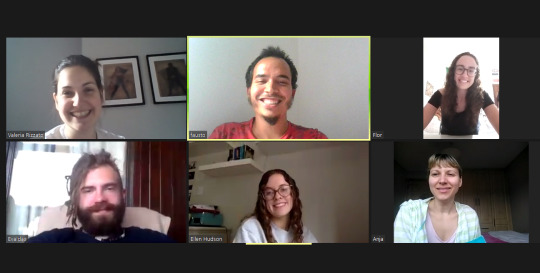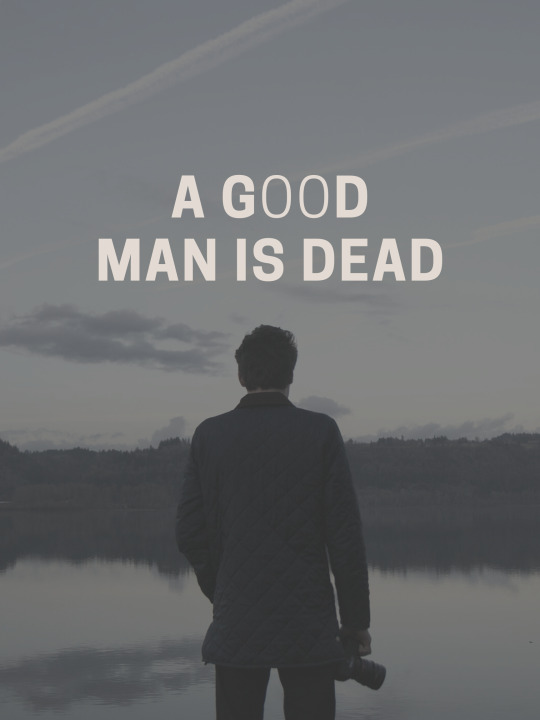#not me watching slasher movies and wondering about the slashers’ artistic intentions (again)
Text
i wholly appreciate that the story of House of Wax (2005) is self-enclosed and wraps up with a thematically meaningful ending and didn’t really leave anything unsaid, which in this current era of sequels, remakes, and prequels really is a rare jewel.
HOWEVER. as a simp. I want More Content.
#river babbles#sequel where Vincent lives and since his shitheel twin is dead he can be left alone and work on his art in peace#or prequel of all 3 siblings building the town and murdering people ig :/#i do have one question actually: why do the victims need to be alive when they’re encased in wax#the setup for making that work is EXTREMELY elaborate so they must deem it necessary for some reason#not me watching slasher movies and wondering about the slashers’ artistic intentions (again)#see also: Texas Chainsaw Massacre talk to me about the bone displays#yes i am a huge fan of NBC Hannibal#the key thing here being that the human body can be so beautiful in ways most of us consider grotesque HOWEVER#it is a goddamn shame that exploration of that theme is so often relegated to horror and played off as like. the work of sick people.
2 notes
·
View notes
Text
Chapter 2: We have a synopsis! (really?)

Anything new you want to start in your life, demands even more energy. And, believe me, it’ll to demands even more. The difference later is that you know a little bit more where and when you need to put your energy harder.
The moment I started writing the project, we had just the intention of keeping us busy and artistic creative during a catastrophic moment in the humankind. Artists, definitely and specially the performative/dramatic ones, suffered a lot from all the social restrictions. Actors were incredibly impacted by all this prison. Actors need a stage, no exceptions.

Without this possibility, we had to move ourselves to a “new” stage. The online stage. But our idea, at first, wasn’t to create a play to be performed on camera. We thought that we could create a series of videos where everyone in the group might perform. As I was studying cinematographic genres, I was really interested in the film diversity.
So, these were the three first drafts of plots that we might perform:
COMEDY- 8 actors who want to make a desktop movie and have no idea of how to do it. They wrote their own scripts – monologues – with one premiss: they have to be based on each other impressions. When they start the rehearsals, they feel themselves exposed through their scripts and conflicts installs.
DRAMA– A jury has to decide the destiny of two children in the middle of a couple divorce. One group supports the father and the other one the mother. As the discussions gets warmer and warmer, they lost the civility and start arguing not more about the case, but about each other’spolitical and social judgements.
THRILLER\MYSTERY - An indoor online funeral in the middle of the pandemia. 8 people, between parents and friends, share their stories about the person who is just dead. Throughout the relates, they start suspect that the person can be not the same. Can it be a strange?
I can’t remember exactly why did we like more of the third one. The third one looked like easier to share the roles between everyone. The moment they choose this one, I started working deeper on a plot. So, one more time, the moment I’m writing this diary (tired, lack of sleep, like many adults between 25 and 60), I can’t remember how I ended up on this project, that follows (update: 23/07):

A good man is dead
START: A COFFIN… 8 PEOPLE RELATED TO THE DEAD… AN ONLINE FUNERAL… A STRANGE ULTIMATE STREAMING SERVICE OFFERED BY A VIDEO PRODUCTIONS COMPANY.
Synopsis
WinstonLumiére (George Orwels’ 1984)is gone. Nobody knows the reason, but most people think is related to the coronavirus outbreak. He was only 36 and afamous Englishphotographer who travelled around the world taking pictures of normal and famous people.
He was in love by the human nature and its variety, unpredictability and idiosyncrasies. With only 31, he won his first photography award, and this became a sequence of other ones in a row, year after year.
Besides, Winston was a journalist devoted to talk to strangers, create unusual friendships and trip into different and contrasting social levels. He went into the poorest one to the high stakes of society, in a charming, lovely and charismatic way. This exciting and free way of living allowed him to meet loads of people.
On the other side, it had its price. On this funeral, 8 people were invited to pay a tribute to him on a live recording. However, they have no idea who is behind of this invitation and which company is this.
The background story of each character is a story itself, in a particular way. I wanted to explore and use different personal, cultural and intellectual references in each one’s development and personality. Thereafter, as the project has been growing, obviously, I had to change some points on each one’s biographies, but, essentially, they remain the same so far.
The reason from most characters are Irish is that most of the cast met themselves in Dublin and are currently living there, though, afterwards, this territoriality was an unnecessary point.
Plotline:
Eight people are invited to pay a tribute in an online funeral to Winston, a young famous photographer, when they suspect this is a plan to get their personal informations.
Hiswife just discovered she istwo month pregnant. Simone Capitu (de Beauvoir, French, Capitu, the Brazilian Machado de Assis’ most famous character)met Winston when he was travelling to France.
They met during a contest in the middle of the Paris streets. He took pictures of her and then they started to date. He felt in love for her strong support to the feminist ideas, her passion for a cause, for human rights and against poverty.
She loved his adventure and wild way of living, his sensibility and always empathetic perception. She had no time to say about the pregnancy,regarding is unsure who the child father actually is.
She wonder if the father is Dorian (Gray), an Irish bohemian buskering singer that she met during a terrible performance of him at the Dublin’s Grafton Street. Dorian’sdream is to be a professional singer and make a living onthis. To get some money, he works calling people to eat in the restaurant where he works.
Dorian wants to be the father of Simone’s baby as a strategy to get public notoriety, but he is confused about the ethical problematic about that. At the end, he will regret of his pursuit and start studying on an arts school in order to improve his artistic skills, when finally he’ll figure out his path to the fame. (this subtext is still being developed – update: 23/07)
One of this mates was Jane(Baby Jane), a frustrated musical actress who feels miserable to be forced to have a meal in a popular restaurant. She was portrayed by Winston and feel sorry about his dead, evenshe complains about his preference for other famous actress that avoids to mention hername.
Jane is in love for Oscar (Wilde), who was portrayed by Winston as well. He is a young transgender bisexual male model, who is just starting his career at the fashion business. He uses his personal charm and sex appeal with the objective to go further into this industry, and has no reserve in talking openly about what he got used to refer as his “flexible” ethics.
Oscar is divided between the love of Jane and the love of Wendy (Torrance), a weirdo hotel director who promised him to get in touch with the most celebrated models agency in the world. Wendy uses a strange technology that allows him to watch inside all his guests room, in order to satisfy his voyeur desires and get personal details to theultra-secret company where he works to.
This corporation sells algorithms to other companies in order to manipulate populations consume and emotional trends and was Wendy who offered this “online funeral service” looking to get private informations.
One of Jack’s guest was Laura (Mulvey), a provocative Brazilian ex-politician, that moved to Europe after a disastrous career and started to get evolved withexcused business. She is hidden on the hotel, as she met him before his death, running from a dangerous mafia that was using her to get favours from its targets with lobby, extortions and similar crimes.
She is tired of having to "use her body" to manipulate men and reach what the mafia wants, but wants to use public notoriety to her self benefit. As the hotel is a phantasmagoric place, she got possessed by a spirit that is trying to dissuade Wendy from her connection to Winston’s businesses, but actually desires her sexually. Wendy will be murdered on the last episode and crime will be expose 225Flix and Cookies and Donuts into an ending crisis.

In the middle of those impossible connections, there is Benjamin (Private Benjamin), simply the sister of Wiston, who has no idea what all those people are doing on this online funeral and why she accepted the strange invitation to do it, despite she knows her brother’s notoriety.
She is a school secretary and an auspicious scriptwriter with two children that dream to be Youtubers and live the adventures as his dead uncle used to live. She uses her epic imagination to distract them with adventures while complains about her husband absence and incapacity to be a father.
And last, but not least, we have HIM, a negationist, who clams to have dangerous informations about Winston. Slasher films addicted, he is a reactionary fanatic that wants to prove that Earth is flat, the History is wrong, and everyone is just manipulated by external and fantastic forces. He lives with his parents, is addicted to the Powerpuff Girls and uses this nickname because of the homonymous villain.
Is there and end to this “story”? The correct answer is: we don’t know. There are short stories directly or indirectly related to the same guy. We have an ending with all the characters singing together and showing the process of making a film this way. (about this, we changed, as the story, as any other, needs an end; so, even the end might not be the “final” end, is an end “for a while”_update: 23/07)
As you can see, the plot is mixed with different influences that don’t have a clear or logical connection. As I mentioned, I wanted to use the academic knowledge in a practical way. I wanted to “transform” the discussions and classes in an entertainment product. And that’s the result so far. References keep growing and changing and I'll explain better each one in the next chapters.
With this plot, at least, we had a story. Not “perfect”, but we had a starting point. Amateur or not, we could, again, TO ACT.
TO BE CONTINUED
1 note
·
View note
Text
PROM NIGHT, Everything is Alright! The Golden Age of Slasher Classic
When I was in my mid-teens, the idea of a prom night seemed impossibly cool and glamorous. From my perspective it was the moment one crossed the divide between the folly of youth and the great unknown of impending adulthood. A night of stretch limousines, corsages, of terrible prom bands, adventure in the darkened halls, a punch bowl spiked with an unknown liquor, and the hero (me) getting the girl of his dreams – all set to an eighties staple, usually something from a John Hughes film. It was, in many ways, the most perfect of nights. But this only happened in America.
You see, I was born and raised in England. When I was growing up we didn’t do proms. We didn’t celebrate the end of the school year, or any of that stuff. I simply trotted off into the overcast, late afternoon drizzle, with the school bully sneering in my ear about the enormous chalk penis he’d drawn on the back of my school uniform. I’d stand, humiliated and quietly cursing as the drizzle turned to a downpour, waiting for an eternity to catch the bus home. This was England, and we didn’t do tuxedos. We did ill-fitting school blazers, frightening verse, Friday night fish and chips, and intense periods of staring out the window into the rain.
While I was pondering the drudgery of my teenage years, the United States had been undergoing cultural and political upheaval that I couldn’t even begin to fathom; as is the way when your only worry is whether you’ll ever get a girlfriend. The early 1980s were particularly tricky for the horror genre. A new decade meant a new broom, in the guise of President Ronald Reagan, to sweep clean the United States, bringing with him a new era of political conservatism. By the time Reagan was sworn in the slasher film was enjoying a halcyon period, but it wasn’t the president’s administration that had the most immediately profound effect on horror movies, but the murder of John Lennon in December 1980.
In the wake of Lennon’s death, a tighter grip was placed around the throat of horror movies. My Bloody Valentine remains the starkest example of the desecration of artistic endeavour by self-appointed bastions of good taste. In this case, the Motion Picture Association of America (MPAA) sought to excise so much of George Mihalka’s movie that it was, according to producer John Dunning, “cut to ribbons“.
A full year before, however, another film of Canadian parentage found its way into cinemas and became one of the first in a conveyor belt of slasher movies that despite a number of peaks and troughs has never really gone away. Following Halloween‘s stratospheric rise from small independent horror to the status of slasher film by which all future slasher films will forever be measured a number of enterprising producers and directors were inspired to try their hand at capturing lightning in a bottle, just like John Carpenter, who’d shown that movies could be made cheaply, without the need for expensive special effects or stars (Donald Pleasance notwithstanding) and still strike gold at the box office.
Things started slowly. By the end of 1979 only a handful of movies from the burgeoning slasher sub-genre had been produced. Tourist Trap, When a Stranger Calls and Savage Weekend were three examples that varied wildly in terms of quality and commercial success. Within a year, the number of slasher films in production had more than doubled and the gravy train was in full flow. Among those was Prom Night, which achieved immediate distinction by casting Jamie Lee Curtis, fresh from filming her sophomore movie, The Fog, and well on her way to confirming her position as the ‘scream queen’.
Yet, Prom Night fits somewhat uncomfortably into the slasher pantheon. Part horror movie, part melodrama, it’s closer to The Prowler in tone than Friday the 13th, but lacks the sheer brutality of its contemporaries: a curious decision for a film conceived in the first place to exploit the public’s desire for such fare.
It certainly conforms to classic slasher tropes; threatening phone calls, teens-in-peril, sex equating death, and the sins of the past coming back to haunt the guilty. While a number of films ultimately improved upon the execution of these staples, Prom Night certainly arrived on the scene earlier than most, having only been preceded by Friday the 13th by a couple of months.
youtube
But is Prom Night a classic? Does it deserve a place at the slasher movie top table? If not, where does it fit in the pantheon? Well, that would depend entirely upon your point-of-view. If, like me, it represents a more innocent and nostalgic movie-viewing time (if watching a bunch of teens being butchered can be deemed nostalgic) then yes, it sits comfortably in the top 10. To say it’s dated would be a huge understatement; the disco scene alone is worthy of a chuckle or two, as is some of the fashion, but it’s certainly retains some emotional resonance, particularly in the final reveal.
Some movies are rightly regarded as important works of art, which may be due to how they tackle a particular theme or the context within which they exist. What elevates a movie’s importance is the way they work to advance the medium and/or stretch the boundaries of the genre in which they exist. Prom Night does none of these things. But that doesn’t make it any less important to me. Yes, I can watch it now with a more critical, world-weary eye and dismiss certain aspects previously viewed as the height of originality. For example, I now connect the dots from Billy’s intensely unsettling phone calls in Black Christmas to the hoarsely whispered threats in Prom Night, or the clear homage it pays to Carrie, with its prom night denouement, albeit minus the tension that made De Palma’s film so essential.
That’s not to say that Prom Night doesn’t have moments that eschew the more ubiquitous slasher traditions. It’s certainly lacking in the classic final girl department. While Jamie Lee Curtis does survive, so does her boyfriend (albeit due to her handiness with an axe) but she’s more final girl-lite than final girl proper. And then there’s the killer. Homicidal, certainly, but in no way the ostensibly mindless killer of Madman or Hell Night, more a vengeance-seeking, ultimately sympathetic character.
Unsurprisingly it was a critical bomb. Gene Siskel, an outspoken opponent of the slasher movie did demonstrate, while damning with faint praise, the difference between Prom Night and many of its contemporaries: “You would think that Prom Night was another one of those hideous attacks-on-promiscuous-women pictures. It’s not. Gender makes no difference in this routine revenge film.” For the teenage version of me, Prom Night was the perfect fodder as an early entry into the slasher genre, a kind of John Carpenter/John Hughes hybrid murder mystery. Fun, but forgettable.
Prom Night is nothing more or less than a good time (with a downbeat finale). It conforms to most, though not all, slasher conventions and doesn’t presume to be anything more than the sum of its parts. The inclusion of instantly datable fare, from the music to the fashion informs the viewer that Prom Night had no intention of being anything more than a one night stand, a ‘wham, bam, thank you ma’am‘ type of movie, and that’s why it’s a perennial favourite.
The teenage me would watch the credits roll on the movie as the rain outside continued to pour, briefly wondering what was so great about prom nights anyway. Then I’d rewind the film and press play again.
The post PROM NIGHT, Everything is Alright! The Golden Age of Slasher Classic appeared first on Nightmare on Film Street - Horror Movie Podcast, News and Reviews.
from WordPress https://nofspodcast.com/prom-night-everything-is-alright-the-golden-age-of-slasher-classic-at-38-july-18/
via IFTTT
1 note
·
View note